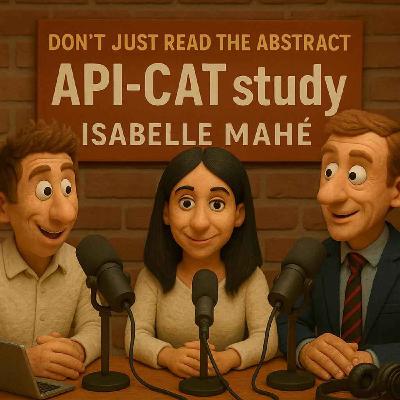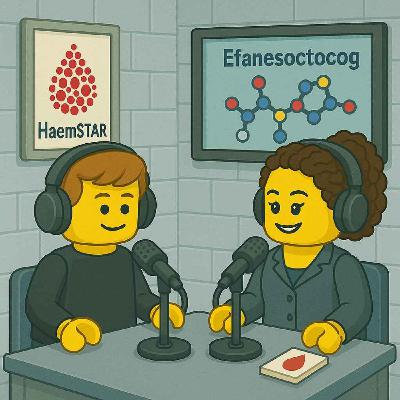
Don't Just Read the Abstract
Author: Richard Buka
Subscribed: 5Played: 23Description
Want to stay up-to-date on the very latest developments in non-malignant haematology? Don't have the time or skills to critically appraise important papers? Join Pip and Rich, two haematology doctors on a journey of learning and discovery. Each episode, they will discuss a seminal trial, critically appraise the paper, interview a study author, and discuss the implications of the trial on clinical practice with a subject expert. CPD credits are available from RCPath. The podcast is sponsored by Sobi as a hands-off educational grant. Sobi have no editorial input whatsoever.
This podcast helps you to go beyond the abstract, delving deep into the methods, results, subanalyses, and implications. Interviews with authors gives a real-life perspective on the running of a clinical trial allowing explanations of why they did what they did and good honest discussion on limitations and how they might do it differently next time.
Hosted on Acast. See acast.com/privacy for more information.























